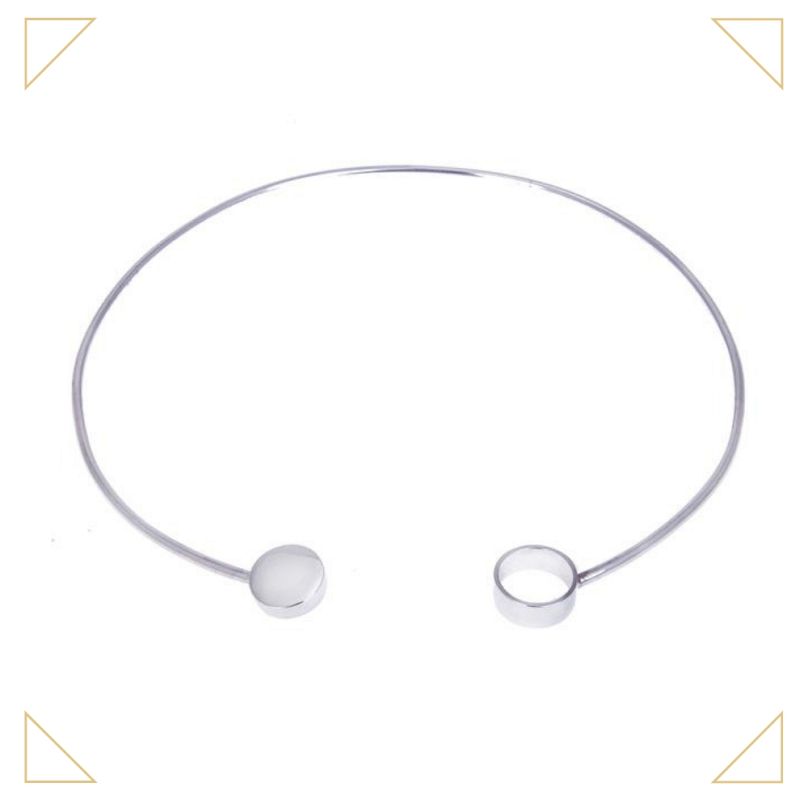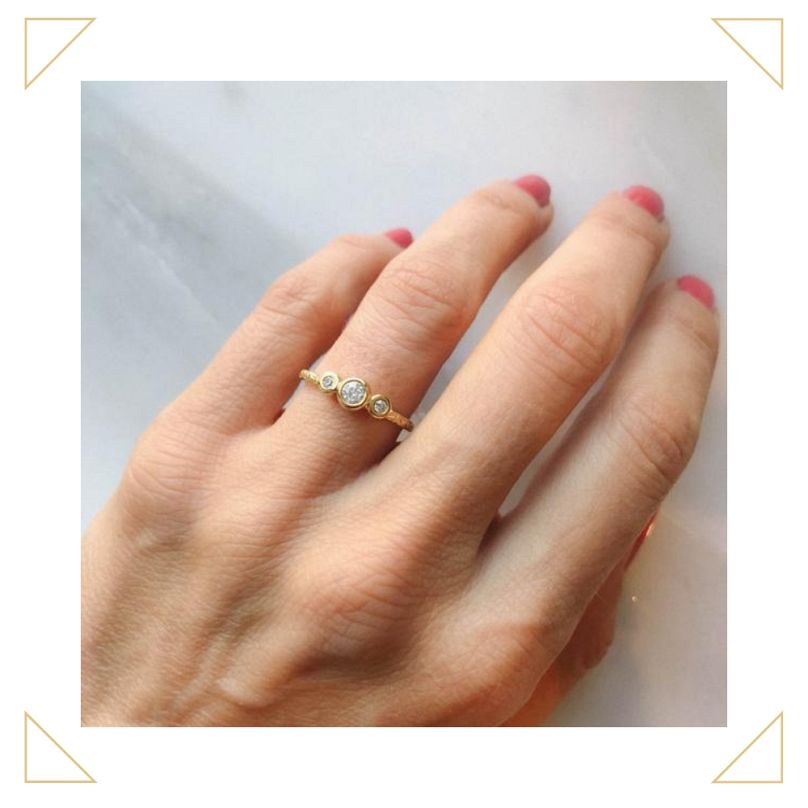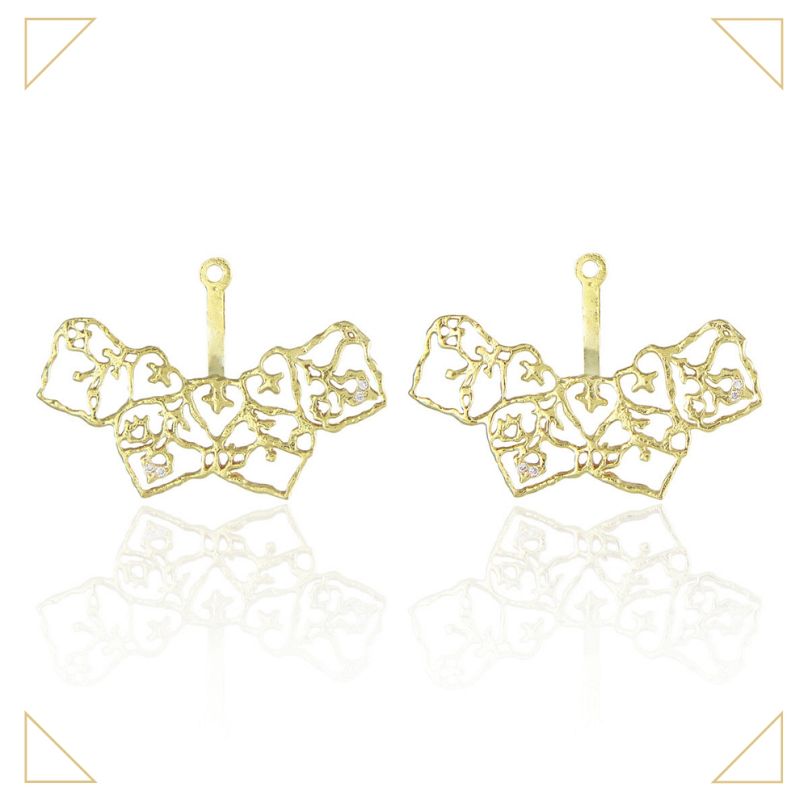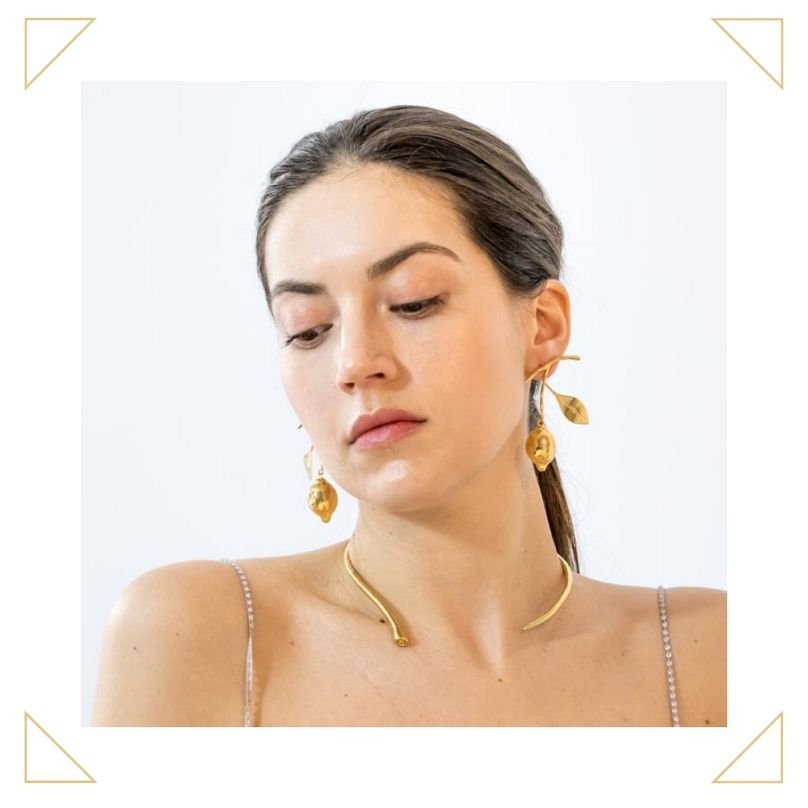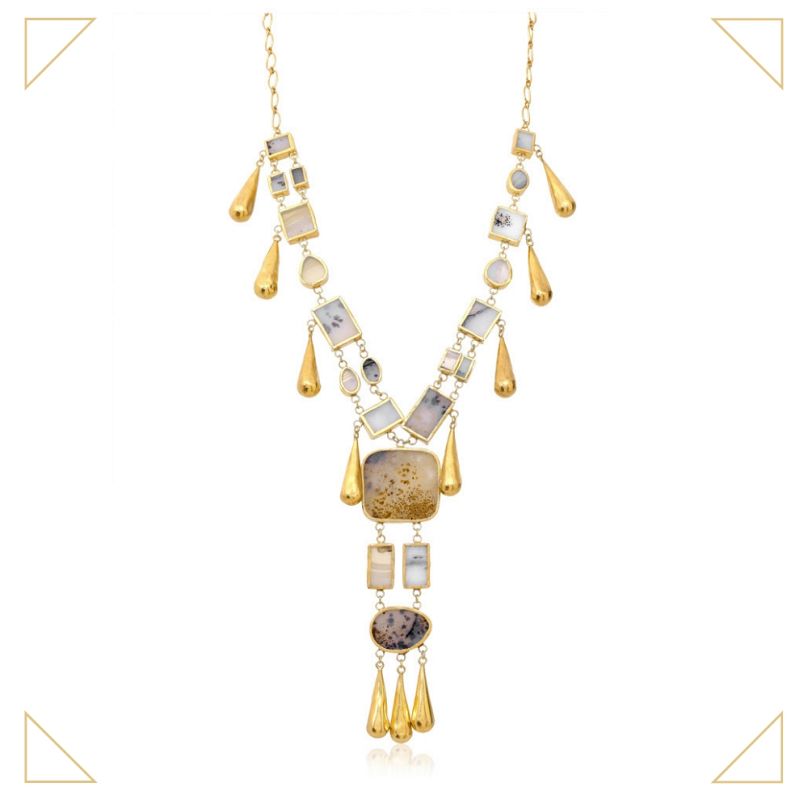Is it possible for jewellery to be ethically-produced? These designers think so.
Is it possible for jewellery to be ethically-produced? These designers think so. We talked to leading sustainable jewellers Natalie Perry and Arabel Lebrusan about how to keep your eco-credentials when buying bling.
Like face creams, coffee cups and yoga mats, jewellery is an ethical issue. Where it was once a minority matter, nowadays all jewellers worth their salt care about how their materials are sourced and their designs made.
And with more consumers caring about the provenance of their purchases, it’s becoming easier to find morally and physically beautiful pieces.
Indeed, with increased knowledge of the ugly reality behind the manufacture of some jewels - the child labour, blood diamonds and inhumane working conditions - the sourcing and production of pieces is something we should all bear in mind when we’re browsing the jewellery counter.
But while consumers and designers are becoming more ethically conscious, the industry is not as transparent as some jewellers would like. Brighton-based jeweller Arabel Lebrusan was one of the first brands in the UK to use Fairtrade gold - that is, gold which supports small scale miners and gives workers a fair price - in her designs and has always put sustainability at the heart of her operations.
“The current challenge for consumers is to learn more about those green credentials from the brands,” she says. “You need to know if the ethical approach is core to the brand identity and followed up by the brand’s processes, or if that brand is simply jumping onto the ethical bandwagon as a trend and therefore not being very thorough.”
Arabel appreciates that buying ethical jewellery means taking more time to investigate and find our jewels and to consider some wider eco questions than buying pieces at face value. But the pay off is worth it.
“It is difficult but it is possible to buy ethical jewellery,” she says. “It’s difficult because precious jewellery uses precious metal and gemstones and these materials need to be mined from the ground. So this poses the question: can a material that comes from the extraction industry be eco-friendly?
“Although this sounds a bit like a contradiction, I want to believe that if we carry out this process as eco-friendly as possible, it should be possible. This would mean mining in a small scale, reforesting areas when the mining is finished, using minimal and controlled chemicals and respecting the flora and fauna of the area.”
After years of working in ethically-conscious jewellery, Arabel is convinced it is possible to produce sustainable products. “There are some organisations, like Fairtrade and Fairmined that support this type of small scale mining for metal specifically; they support and educate communities to mine their areas in this gentler way,” she says.
“They have certification programs where jewellers like us can sign up. As an ethical jeweller myself, I have chosen to be part of both certification schemes and to use their ethical metals.”
Transparency and traceability
For fellow jeweller Natalie Perry, who was named Professional Jeweller’s Young Designer of the Year 2018 and won Ethical Collection of the Year 2017, it’s all about asking the right questions before you buy.
“Ask brands questions about their sustainability and ethical credentials,” she says. “Avoid any brands that are not trading responsibly or are claiming to be more ethical than they actually are.”
Likewise, Arabel believes there are three key pieces of information to find out from your jeweller. “Ask about the materials,” she says. “What is the piece made from? And where do they come from? Traceability is one of the biggest issues in jewellery, as suppliers and brands are not obliged to disclose this information.
“Then think about who made this piece of jewellery. Disclosing who made it is not a must so always go with jewellery from brands, designers or designer makers who can tell you exactly who made that piece of jewellery.
“And finally think about how to prove all of the above. Selling ethical products is definitely on trend and to avoid fakes, that is brands that pretend to be ethical but are not really, always ask for proof. Certificates of origin, membership of certification programs and hallmarks will give you some assurance of their ethical processes.”
Lastly, be sure to find a piece that has longevity. “Look out for pieces that you love,” says Natalie. “Find one with a unique design and make sure you wear it over and over again in order to reduce the amount of fast fashion waste.”
Top ethical jewellery brands to look out for
ANUKA, Amati Collar Necklace, £220
ARABEL LEBRUSAN, Demeter Trilogy Ethical Diamond Engagement Ring, 18ct Ethical GolD, £1230
NATHALIE PERRY, Curved Ear Jackets, £800 | Shop now
PASCALE JAMES, Hanging Lemon Earrings (22ct Gold Vermeil), £485.00
PIPPA SMALL, Tamadun Agate Necklace, £1,010.00
Words: Keeley Bolger












